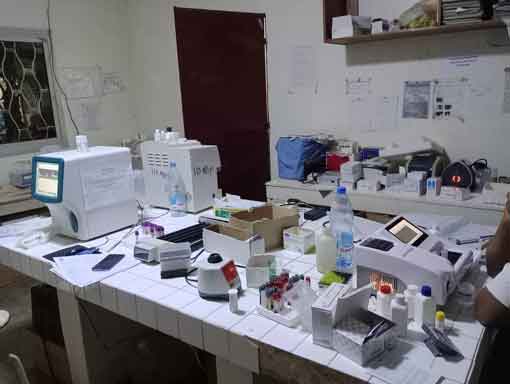Published on April 22, 2024, in All News
Introduction
In the intricate world of medical diagnostics, precision and reliability are paramount. Whether you’re a seasoned healthcare provider, a diligent lab technician, or someone captivated by the advancements in medical technology, understanding the tools that drive accurate analysis is crucial. This guide will introduce you to the ten indispensable pieces of equipment that form the backbone of any diagnostic laboratory, ensuring thorough medical analyses and optimal patient care.
The Arsenal of Diagnostic Tools
Every diagnostic laboratory is a hub of activity, where various conditions are identified and analyzed with the help of specialized equipment. Here’s an essential toolkit that each lab must be equipped with:
- Microscopes – The windows to the microscopic world, vital for revealing cellular structures and microorganisms.
- Spectrophotometers – Instruments that measure the absorption of light, providing insights into the chemical makeup of substances.
- Centrifuges – Workhorses that separate substances by density, essential for processing samples like blood.
- PCR Machines – The detectives of genetic material, amplifying DNA and RNA to detect and study genetic sequences and infectious agents.
- Hematology Analyzers – Critical for analyzing blood cells, helping diagnose conditions such as anemia and leukemia.
- Chemistry Analyzers – Tools that measure chemicals and enzymes in bodily fluids, key in diagnosing metabolic disorders and more.
- Immunoassay Analyzers – Devices that detect proteins and antibodies, indispensable for identifying infectious diseases and immune responses.
- Histology and Cytology Equipment – Essential for preparing and analyzing tissue samples, crucial in the diagnosis of cancer.
- Automated Blood Culture Systems – These systems identify bacteria and fungi in blood, crucial for pinpointing infections.
- Urinalysis Analyzers – Analyzers that assess urine to help detect health indicators related to the urinary system and kidneys.
Investing Wisely: A Buying Guide for Diagnostic Equipment
Selecting the right diagnostic equipment is more than a purchase—it’s a pivotal decision that influences the quality of care you provide. Here’s how to make informed choices:
- Prioritize Precision and Accuracy: Opt for instruments known for their high precision. Accurate results are the cornerstone of effective treatment and patient trust.
- Assess Durability and Reliability: Choose robust equipment capable of enduring the demanding environment of busy labs while maintaining consistent performance.
- Consider Long-Term Costs and Value: Look beyond the sticker price. Inexpensive equipment often leads to higher operational costs down the line due to maintenance, repairs, and inefficiencies.
- Evaluate After-Sales Service and Support: Ensure your investment is backed by responsive and competent technical support. A good service agreement will minimize downtime and maintain operational efficiency.
- Software and Integration Capabilities: In our digital age, the ability to integrate seamlessly with existing health information systems can greatly enhance efficiency and data accuracy.
- Regulatory Compliance and Certifications: Ensure all equipment complies with the necessary regulatory standards, ensuring safety and efficacy.
- User Training and Ease of Use: Choose user-friendly equipment with comprehensive training options to maximize your team’s ability to leverage these tools effectively.
Conclusion
Investing in the right diagnostic laboratory equipment is a strategic decision that significantly affects your ability to diagnose accurately and care effectively. By choosing wisely, not only do you enhance your laboratory’s capabilities, but you also uphold the highest standards of patient care. Equip your laboratory with cutting-edge tools that promise precision, efficiency, and reliability, ensuring that each diagnosis contributes to health and wellbeing.
our laboratory with the latest and most efficient tools to ensure the best outcomes.
